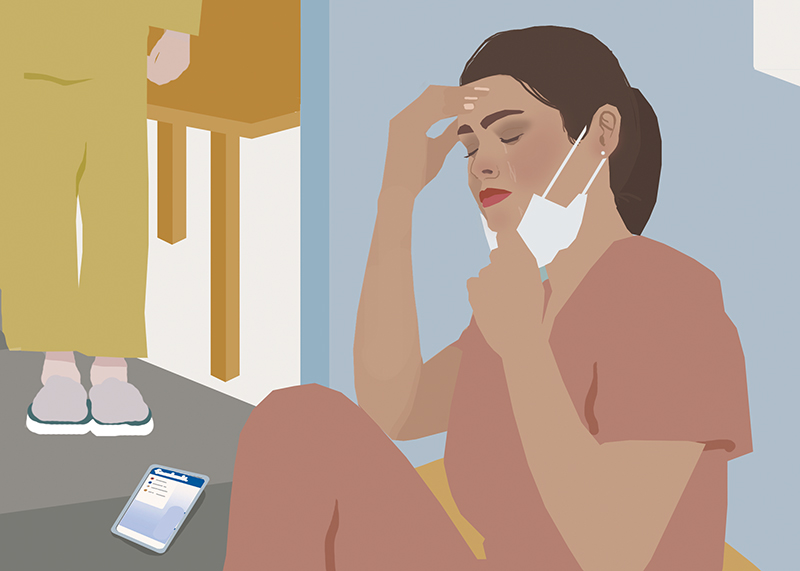Healthy Workforce
How to Stop Cyberbullying in the Workplace
Harassment is harassment whether in person or online

Tory is the manager on a 22-bed urology unit. As soon as she arrives at work, one of her nurses rushes into her office and says, “Did you see what Carrie posted on Facebook about Imani?” Tory learns that Carrie made nasty remarks about Imani’s competence (or lack of), her appearance, and her accent. What makes the post worse is that Imani is a new nurse and Carrie is her preceptor! Carrie also named their organization in her post. What should Tory do?
If you’ve ever received harassing email from someone at work or had nasty things posted about you online by a coworker, you know what it’s like to be a target of workplace cyberbullying.
Cyberbullying has the same intent as face-to-face bullying: to snub, badger, browbeat, or intimidate. It can take many forms: spreading negative gossip to ruin your reputation, making malicious comments, or sharing embarrassing photos or private information.
The effects are often devastating to the target, physically, emotionally, and mentally.
What Is Cyberbullying?
Sadly, as technology evolves, it often creates new ways for people to be cruel to one another. There are as many types of cyberbullying as there are forms of online communications.
Some examples include:
- Sending malicious or threatening emails, texts, or direct messages (DMs).
- Mass email or social media posts that spread lies and gossip.
- Sharing embarrassing or offensive images or videos of an individual online (including fake or manipulated images).
Digital Damage
Cyberbullying is easier than traditional bullying. Some forms of online harassment have the benefit of anonymity, and people often say things online that they’d be reluctant to say to someone’s face.













